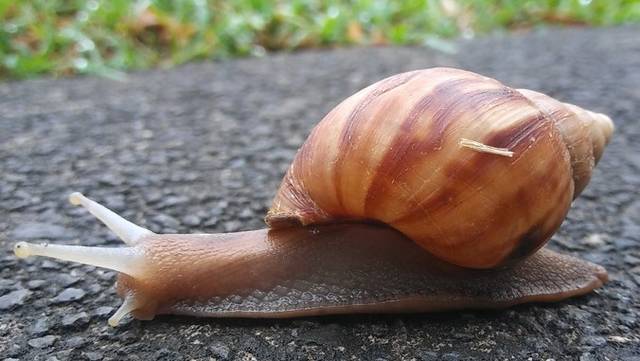HONOLULU – The Hawaii Department of Health (DOH) has confirmed a recent case of rat lungworm disease in an infant from East Hawaii.
The infant was the sixth individual from Hawaii Island who tested positive for angiostrongyliasis in 2018, bringing the statewide total to eight cases confirmed last year. So far, there are no confirmed rat lungworm disease cases in 2019.
The infant became ill in early December and, since then, has been transferred to Oahu and is hospitalized for further case management. DOH disease investigators are conducting a detailed investigation to learn more about the patient and possible sources of infection.
“Determining the exact source of infection for rat lungworm disease in any patient is difficult since it requires a deep dive into a person’s food consumption history,” said Health Director Bruce Anderson. “Infants can be even more complicated because they can’t verbalize their symptoms or what they ate. A parent or caregiver would have to see them picking up a slug or snail and putting it in their mouth. We know this is how most children who become ill with rat lungworm disease get infected, so it’s important keep our keiki away from these harmful vectors as much as possible.”
With the majority of cases appearing on Hawaii Island in recent years, Hilo Medical Center created the Rat Lungworm Support Group at the request of a survivor. Since its inception in December 2017, the group has been primarily focused on supporting survivors and their caregivers, who are living through long-term effects of rat lungworm disease. Participants learn about resources and information from healthcare providers, government officials, medical experts and advocates who support research and prevention efforts of the disease.
Hilo Medical Center recently announced web-based video access to group meetings allowing people to now join in virtually from the comfort of their own homes. The inaugural teleconference of the meeting in December welcomed participants as far as Colorado and Mexico. To learn more about the support group and upcoming meetings, visit https://www.hilomedicalcenter.org/our-services/support-groups/rat-lungworm-support-group/.
DOH provides the following recommendations to prevent rat lungworm disease:
Control snail, slug, and rat populations around homes, gardens and farms. Get rid of these vectors safely by clearing debris where they might live, and also using traps and baits. Always wear gloves for safety when working outdoors.
Inspect, wash and store produce in sealed containers, regardless of whether it came from a local retailer, farmer’s market, or backyard garden.
Wash all fruits and vegetables under clean, running water to remove any tiny slugs or snails. Pay close attention to leafy greens.
Angiostrongyliasis, commonly known as rat lungworm disease, is caused by a parasitic roundworm and can have debilitating effects on an infected person’s brain and spinal cord. In Hawaii, most people become ill by accidentally ingesting a snail or slug infected with the parasite Angiostrongylus cantonensis (A. cantonensis). Symptoms vary widely between cases, and the most common ones include severe headaches and neck stiffness. The most serious cases experience neurological problems, severe pain, and long-term disability.

